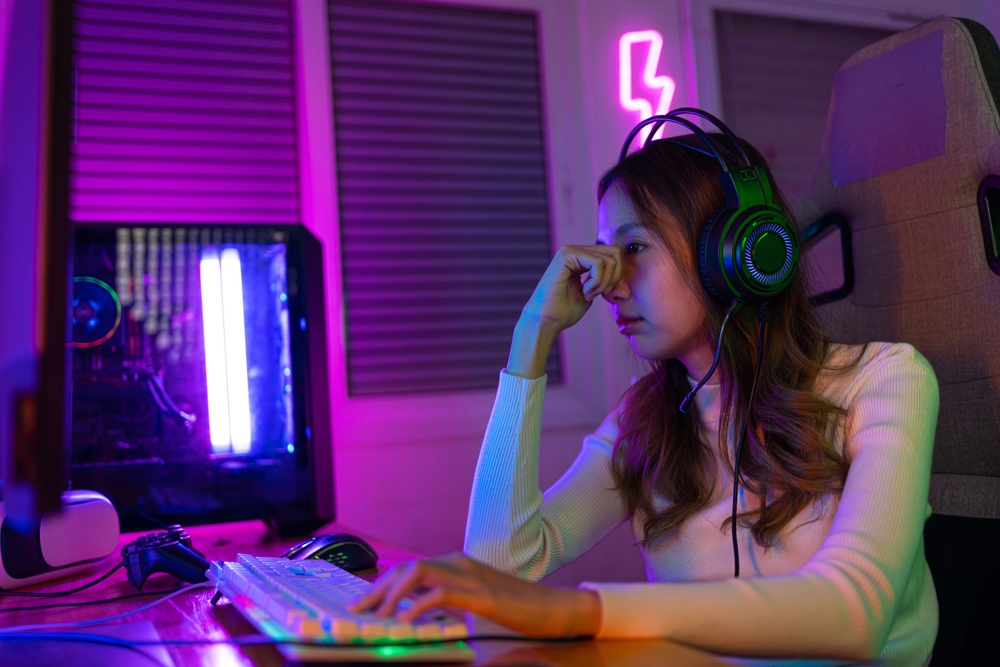
In today's digital age, we've become increasingly reliant on screens. From our smartphones to our computers, many of us spend hours each day glued to these devices. But have you ever considered the impact of this excessive screen time on your eyes?
What is dry eye?
Dry eye is a common condition that occurs when your tears aren't able to provide adequate lubrication for your eyes. This can happen if you don't produce enough tears or if the tears that you do produce evaporate too quickly. Dry eye can make it feel as though there's something in your eye, and it can also cause your eyes to sting or burn.
Causes of Dry Eye
There are many potential causes of dry eye. Age is a significant factor, as the production of tears tends to decrease as we get older. Certain medical conditions can also lead to dry eyes, including diabetes, rheumatoid arthritis, and thyroid disorders. Certain medications, including antihistamines, decongestants, and antidepressants, can also cause dry eyes.
In addition to these factors, lifestyle choices can also contribute to dry eyes. This is where screen time comes into play. When we stare at a screen, we blink less often, which can cause our tears to evaporate more quickly. This can lead to dry eyes, particularly if we spend long periods of time in front of a screen without taking breaks.
The Impact of Excessive Screen Time on Dry Eye
Screen time has become a significant part of our lives. Whether it's for work, school, or leisure, many of us spend hours each day looking at screens. However, this can have a detrimental effect on our eye health, particularly when it comes to dry eyes.
When we focus on a screen, we tend to blink less. Blinking is crucial for eye health, as it helps to spread tears evenly across the surface of the eye, keeping it moist and healthy. If we blink less, our eyes can become dry and irritated.
Furthermore, many of us use screens in environments that are not conducive to eye health. For instance, we might use our devices in rooms with air conditioning or heating, both of which can dry out our eyes. We might also use screens in low-light conditions, which can strain our eyes and further contribute to dry eyes.
Strategies to Combat Dry Eye
While it may seem like our screens are an inevitable part of our lives, there are strategies we can use to mitigate their impact on our eyes.
Firstly, it's important to take regular breaks from our screens. This is known as the 20-20-20 rule: every 20 minutes, take a 20-second break and look at something 20 feet away. This gives our eyes a chance to rest and can help prevent dry eyes.
Secondly, it's crucial to stay hydrated. Drinking plenty of water can help keep our eyes moist and healthy. It's also a good idea to use artificial tears or lubricating eye drops to help maintain a healthy tear film on the surface of our eyes.
Finally, it's important to make sure our screens are positioned correctly. Our screens should be at eye level and about an arm's length away. This can help reduce eye strain and prevent dry eyes.
Treatment Options for Dry Eye
If you're already suffering from dry eye, there are several treatment options available. Over-the-counter eye drops can provide temporary relief for dry eye symptoms. Prescription medications can also be used to treat dry eyes, including drugs that reduce inflammation or help your eyes produce more tears.
It's important to speak to your eye care professional if you're experiencing dry eye symptoms. They can help you understand the cause of your symptoms and recommend the best treatment options for you.
Balancing Screen Time and Eye Health
Excessive screen time can indeed lead to dry eyes. This is due to a combination of factors, including blinking less, exposure to blue light, and holding our devices in positions that strain our eyes.
Ultimately, it's about finding a balance between our screen time and our eye health. It's important to remember that our eyes were not designed to stare at screens all day. So, while our devices may be an integral part of our lives, it's crucial to prioritize our eye health and take steps to prevent dry eye.
To learn more about the impact of excessive screen time on dry eyes, visit Island Family Eye Care at our office in Grand Island, New York. We deliver the highest quality care for our community. Please call (716) 775-2220 to schedule an appointment today.







